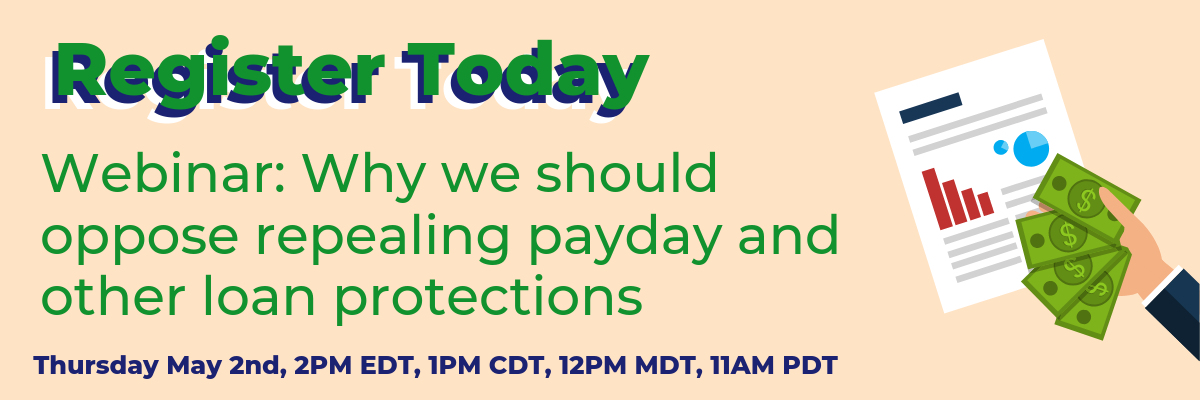
- This event has passed.
Webinar: Why We Should Oppose Repealing Payday and Other Loan Protections
May 2, 2019 @ 2:00 pm - 3:00 pm

Join the Coalition on Human Needs and Americans for Financial Reform for a webinar that will tell you all about rules that protect consumers from payday loans and other forms of predatory financing-and how the Trump administration is trying to repeal those protections.
And you’ll learn how to slow down the Administration’s efforts by commenting on the dangers of their proposal.
In October 2017, the Consumer Financial Protection Bureau (CFPB) issued a final national rule that protected borrowers from appallingly high interest rates on payday and car title loans. For years, civil rights organizations, consumer advocates, faith groups, working families, and others across the country have pushed for a rule to protect their communities from the payday lending debt trap. But now the CFPB is looking to gut crucial protections against predatory payday lenders.
Join us to learn why payday and car title lending protections work, and how we can protect them. This webinar will feature expert speakers on the rule change and why it matters, as well as examples of why protections against payday lending work at the state level. You’ll also learn about how you can take action to stop the Trump administration by commenting against the CFPB rule change.
Deborah Weinstein, Executive Director of the Coalition on Human Needs, will moderate.
